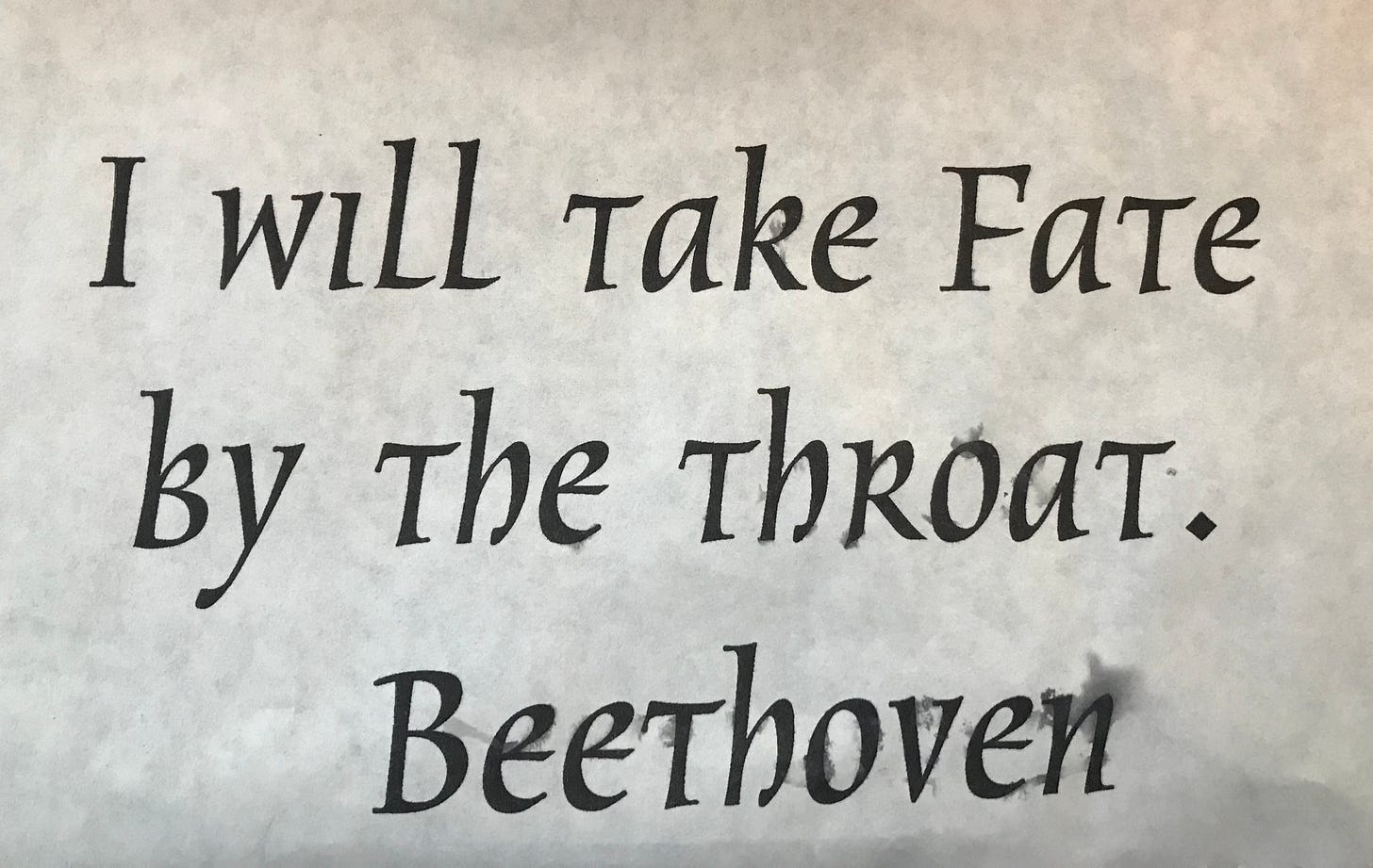Against the determinism of the sociologists
"Everything's beyond my control" or "I will take fate by the throat"?
In Adieux: A Farewell to Sartre, Simone de Beauvoir published a long discussion she had with her companion Sartre in the last years of his life. In the many pages of that discussion, I found the following bit that I have used intermittently over the years as an email signature:
Simone de Beauvoir: Broadly speaking, how would you define...what you call E…


